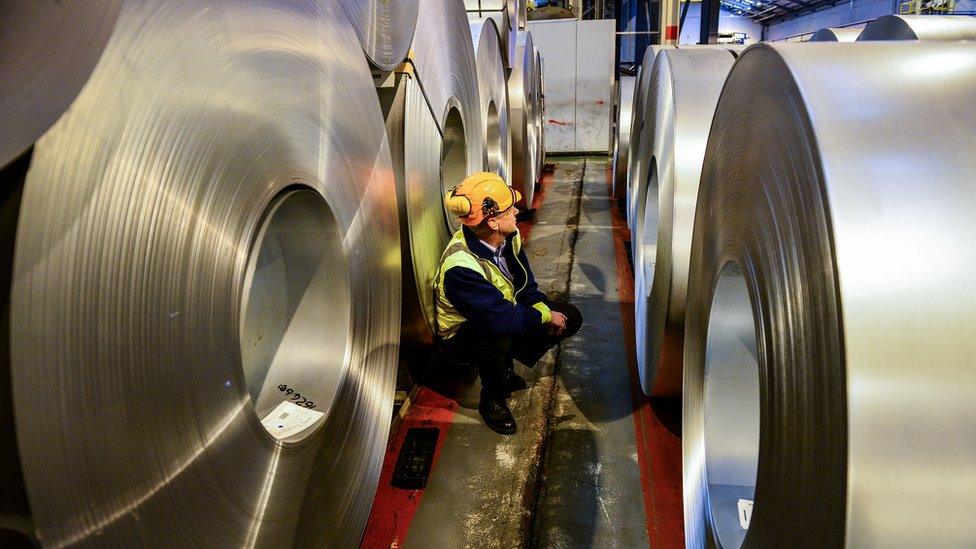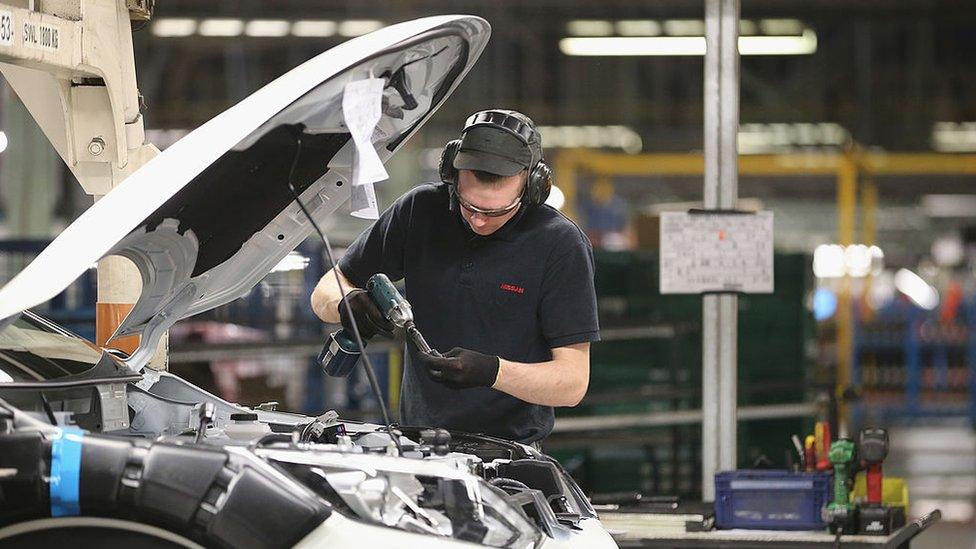Growth slows in UK services sector
- Published
- comments

The weaker growth trend was most evident in places such as hotels and restaurants
Growth in the UK services sector slowed to its lowest pace in nearly a year last month, according to a survey.
The IHS Markit/CIPS purchasing managers' index (PMI), external for August dropped to 53.2 from 53.8 in July. A figure above 50 indicates expansion.
Growth in new orders slowed and cost pressures picked up.
However, a separate survey, external suggested the manufacturing sector was enjoying "buoyant conditions", with strong demand from overseas.
The survey, from the manufacturing body EEF and accountancy advisers BDO, said export markets were going from "strength to strength", with the upswing in the eurozone markets providing a notable boost.
The balance of companies seeing rises in output and orders hit the highest since the survey began in 1995.
Lee Hopley, EEF's chief economist, said manufacturing firms were "making hay while the sun shines", although she added that growth was expected to stabilise in the coming months.
Last week, the PMI survey for manufacturing, external also suggested that growth in the sector was accelerating.
'Warning signals'
The services sector is very important for the UK as it accounts for about 80% of the economy. The PMI survey indicated that new order volumes in the sector increased last month at the second slowest rate since September 2016.
Several providers commented that "fragile business confidence had led to delayed spending decisions among clients".
Rising costs for fuel, staff and imported goods also led to companies raising their prices, the survey found.
Chris Williamson, chief business economist at IHS Markit, said: "Although the latest two months' data put the economy on course for another 0.3% expansion in the third quarter, momentum is being gradually lost.
"Robust manufacturing growth means the economy may be rebalancing towards goods production, aided by the weaker pound, but the slowdowns in services and construction send warning signals about the health of the economy.

UK manufacturers have enjoyed a rise in orders
"In services, the weaker growth trend was most evident in consumer-facing sectors such as hotels and restaurants and other personal services, which includes businesses such as cinemas, gyms and hairdressers.
"The overall level of optimism also remained subdued, mainly linked to Brexit uncertainty, close to levels that have previously been indicative of the economy stalling or even contracting."
However, work backlogs increased in August and firms employed the largest number of people in 19 months - offering slightly higher wages to keep key staff.
Paul Hollingsworth, UK economist for Capital Economics, said that the increase in demand suggested "that this month's weakness might prove short-lived".
- Published1 September 2017
